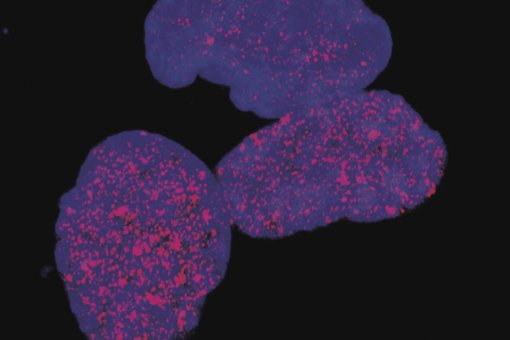Images
Participants




Contact

Combination of two strong denaturants of DNA leads to stabilization of the structure
An unexpected finding that opens new fields to the biotechnological use of DNA
Pyridine, that is known to unfold DNA, can also have a strong stabilizing effect on it under acidic conditions. A study based in laboratory and computational experiments highlights the tuneable nature of pyridine as denaturant and opens new means to alter the thermal stability of nucleic acids. The results of this study are available from today at Angewandte Chemie, one of the leading journals in Chemistry.
The paper is based on experimental and theoretical evidences that pyridine effect on DNA changes drastically according PH conditions. While at neutral pH, Pyr reduces the stability of duplex DNA, even at low concentration, at acidic pH the opposite occurs.
Biotechnological implications
The results do provide for further studies on the relationship of pyridine and its derivatives with DNA with clear biotechnological implications. The structural origin of Pyr+ stabilization could be exploited in experiments where DNA should be kept stable while other macromolecules are unfolded, and to design new cationic pyridine derivatives for the delivery of genes which should act on acidic media.
Also, the similar mode of interaction between choline and Pyr+ cations with DNA detected suggests an avenue for the design of new DNA agents for nanobiotechnological applications (such as nanodevices with applications in photonics, litography and electronics), and the tunable denaturing/renaturing effect of Pyr could aid the development of programmable fluorophore-quencher DNA-based nanoswitches such as pH nanosensors with ability to respond to pH changes of their localized environment.
Authors
The study has been led by Dr Guillem Portella, Dr Montserrat Terrazas and Prof Modesto Orozco, all of them from Joint Barcelona Supercomputing Center –Institute for Research in Biomedicine Barcelona Program in Computational Biology, in collaboration with Department of Biochemistry and Molecular Biology of University of Barcelona, Department of Chemistry of University of Cambridge and Instituto de Química Física Rocasolano from Consejo Superior de Investigaciones Científicas.
Article reference:
Can A Denaturant Stabilize DNA? Pyridine Reverses DNA Denaturation in Acidic pH
Guillem Portella, Montserrat Terrazas, Núria Villegas, Carlos González and Modesto Orozco
Angewandte Chemie (July 2015) DOI: 10.1002/anie.201503770
About IRB Barcelona
The Institute for Research in Biomedicine (IRB Barcelona) pursues a society free of disease. To this end, it conducts multidisciplinary research of excellence to cure cancer and other diseases linked to ageing. It establishes technology transfer agreements with the pharmaceutical industry and major hospitals to bring research results closer to society, and organises a range of science outreach activities to engage the public in an open dialogue. IRB Barcelona is an international centre that hosts 400 researchers and more than 30 nationalities. Recognised as a Severo Ochoa Centre of Excellence since 2011, IRB Barcelona is a CERCA centre and member of the Barcelona Institute of Science and Technology (BIST).




